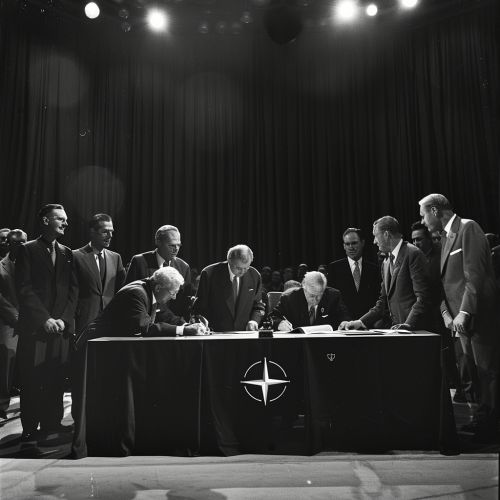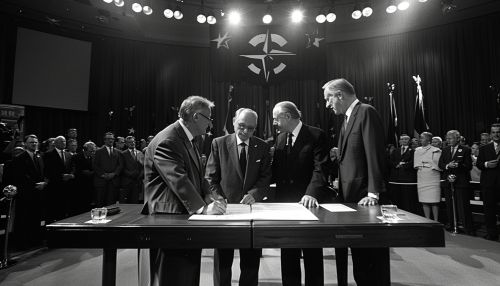North Atlantic Treaty Organization
Origins and Formation
The North Atlantic Treaty Organization (NATO) was established on April 4, 1949, as a system of collective defense. The parties involved agreed to mutual defense in response to an attack by any external party. NATO's birth was primarily a response to the threat posed by the Soviet Union's expansionist policies in the aftermath of World War II. The original members included the United States, Canada, and ten Western European countries.


Structure and Organization
NATO's organizational structure is complex, reflecting its nature as a military-political alliance. The main bodies include the North Atlantic Council, the Defense Planning Committee, the Nuclear Planning Group, and the Military Committee. The North Atlantic Council is the primary decision-making body, composed of permanent representatives from member states. The Defense Planning Committee and Nuclear Planning Group are responsible for NATO's military strategy.
Membership
NATO's membership has expanded over the years, from the original 12 members to 30 as of 2021. The process of joining NATO involves a series of talks, reforms, and consensus among existing members. The most recent additions to NATO were Montenegro in 2017 and North Macedonia in 2020.
Military Operations
NATO has been involved in numerous military operations since its inception. Its first major operation was in Bosnia and Herzegovina in the mid-1990s. Other notable operations include the intervention in Kosovo, the war in Afghanistan, and the enforcement of a no-fly zone over Libya.
Criticisms and Controversies
NATO has faced various criticisms and controversies throughout its history. Critics argue that NATO's actions often bypass the United Nations and international law. Others claim that NATO is an instrument of U.S. global dominance. The organization has also been criticized for its lack of transparency and accountability.
Future of NATO
The future of NATO is a subject of ongoing debate. Some argue that NATO should adapt to new security challenges, such as cyber warfare, terrorism, and the rise of China. Others believe that NATO has outlived its usefulness and should be dissolved.
